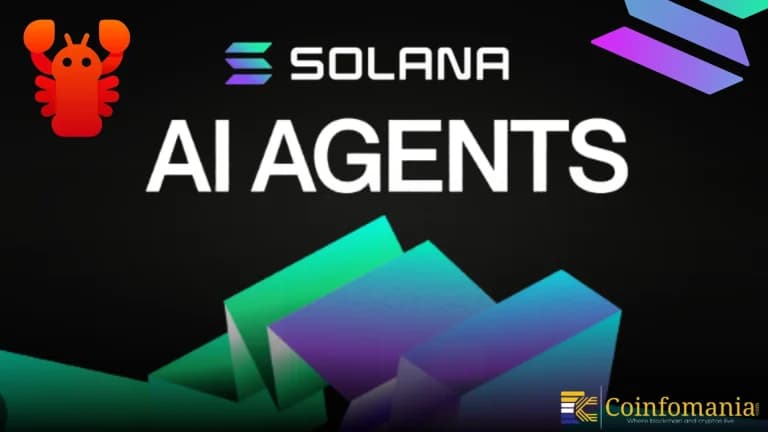Cas Abbé Shares Bill Pulte’s Push to Let Americans Use Crypto for Home Loans
Let’s uncover how crypto collateral for home loans could change finance forever—will mortgages finally recognize digital assets?

Quick Take
Summary is AI generated, newsroom reviewed.
Crypto collateral may soon be accepted for mortgage approval through Fannie Mae and Freddie Mac, marking major real-world utility.
The move could encourage long-term crypto holding, increase trust in digital assets, and reduce selling pressure.
It may also reshape global financial systems and modernize housing finance for the crypto-native generation.
On June 25, 2025, a powerful shift in financial history began to take shape. According to reports by several credible sources including Bloomberg and Zero Podcast, Bill Pulte, the newly appointed Director of the Federal Housing Finance Agency (FHFA), has taken a game-changing step. Pulte has instructed Fannie Mae and Freddie Mac, two of the most significant mortgage entities in the US, to prepare for the possibility of treating crypto collateral as a legitimate asset in mortgage evaluations.
This isn’t a simple policy tweak. This could mark the most significant real-world utility for digital assets to date. For years, the crypto ecosystem has promised disruption in traditional finance, but real-world applications have been sparse or speculative. If crypto can truly be used as collateral for home loans, we’re talking about an entirely new level of financial integration, one where digital value directly intersects with brick-and-mortar utility.
In his official capacity, Pulte stated that the move aligns with the broader national vision to establish the United States as the crypto capital of the world. The order mandates that both Fannie Mae and Freddie Mac begin operational planning to treat cryptocurrency as a mortgage-worthy asset. This is more than forward-thinking, it’s federal recognition of crypto as a foundational financial tool.
Why This Could Be the Biggest Leap in Crypto Utility Yet
The decision, if implemented, could change the way both the real estate and crypto industries operate. Until now, crypto holders have had limited real-world use for their holdings aside from speculative trading or crypto-backed loans via DeFi platforms. But this federal-level consideration signals something deeper, a recognition of crypto as stable, traceable, and usable in high-trust scenarios like home financing.
Mortgage institutions like Fannie Mae and Freddie Mac operate under strict financial guidelines. The mere possibility that they could one day accept crypto collateral means that they now recognize a level of maturity and permanence in digital assets. This is no longer fringe finance. It’s becoming federally embedded.
Industry leaders are already calling this a turning point. Michael Saylor noted that this moment represents the integration of Bitcoin into the American Dream, a symbolic and functional milestone that future generations may look back on as a foundational moment for crypto in everyday life.
How This Policy Could Impact Holders and Homebuyers
If this directive turns into a real policy, crypto holders could capital unlock their wealth through unlocking without the need to sell their assets. For most investors unlocking liquidity means selling their crypto, at least sacrificing the long-term upside and more importantly actually triggering a taxable event. However, if these investors can, however, use their crypto as collateral on a mortgage, they will be able to maintain ownership and upside.
This creates a major incentive for people to hold digital assets longer, reducing volatility from panic selling. It also enhances trust in the asset class itself, as government-supported financial institutions start acknowledging their value.
Furthermore, this reform could greatly streamline mortgage approval processes for a younger generation that’s already fully ingrained in crypto. It may be more intuitive for buyers to use tokens such as BTC or ETH to secure a mortgage, rather than relying only on fiat-based credit histories.
What It Means for the Future of Finance and Housing
Beyond individual benefits, this signals a broader shift in how financial institutions view crypto. We’re heading toward an era where digital assets aren’t just speculative vehicles, but standard components of a modern portfolio.
If this model proves successful, other countries might follow the US example, eventually making crypto-backed mortgages a global financial standard. This could also inspire fintech and traditional finance companies to innovate new services, bridging the gap between Web3 wealth and real-world use cases.
Bill Pulte’s directive isn’t just a regulatory update, it’s the embedding of crypto into one of life’s most meaningful milestones: buying a home. In doing so, it challenges outdated financial models and validates digital assets in a way no ETF or centralized exchange ever could. It’s not just about mortgages. It’s about crypto finally stepping into the center of the American financial experience.
References
- Crypto just got its biggest real-world utility.
- After significant studying, and in keeping with President Trump’s vision to make the United States the crypto capital of the world.
- Congratulations. Future generations will remember this as the moment Bitcoin entered the American dream.
- Folks ask why go through the trouble of building a regulated company?
- Crypto is merging more and more with TradFi.
Follow us on Google News
Get the latest crypto insights and updates.
Related Posts

Why MoltID Could Redefine Trust For AI Agents Inside The Solana Ecosystem?
Vandit Grover
Author

Gold Meets Blockchain: Canadian Firm Offers Dividends in Tether’s XAUT
Triparna Baishnab
Author

XRP to $70 by June? Analyst Prediction Ignites a New Crypto Debate
Triparna Baishnab
Author